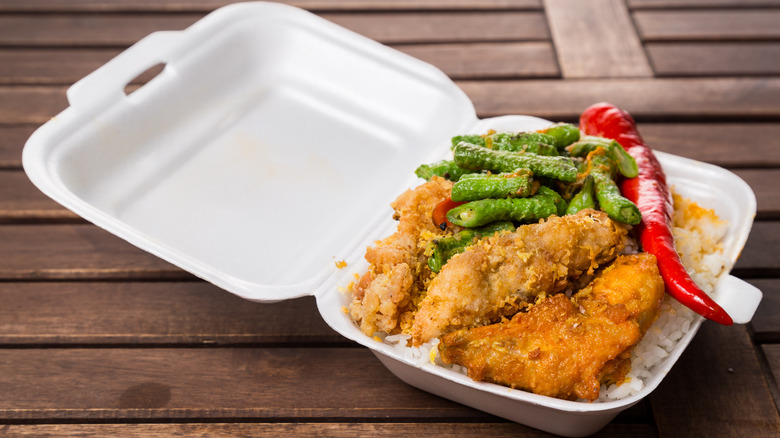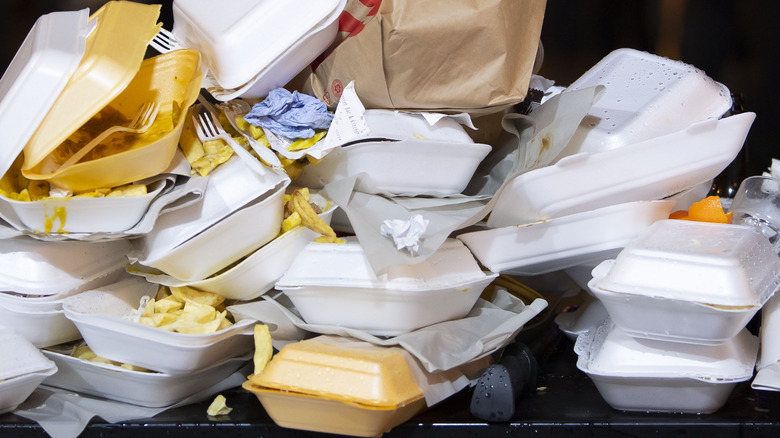Why New York City Had To Fight To Ban Foam Takeout Boxes
Take-out is indisputably popular, not to mention a convenient way of transporting yummy goodies, but it's not always the most healthy or environmentally friendly option. Aside from the fact that the popular carry-out items like milkshakes and pizzas are often filled to bursting with alarming levels of sugar and salt, the food we bring home from restaurants is sometimes packaged in ways that can damage the environment.
Keeping meals and drinks safe and delicious while they are transported through bustling streets is not an easy feat — it requires a tough, durable substance to complete the heroic objective. Containers made of shiny and squeaky white plastic foam have long been seen as the ideal option for completing the task, but concerns exist over the harm they do to the planet.
Striving to back a more ethical way to consume food, New York City opted to ban plastic foam packaging in July 2015. BBC News reports how the city's authorities decided it was necessary to prohibit companies from using — or even possessing — Expandable Polystyrene Foam (EPS). But, as noted by The New York Times, severe opposition from businesses risked destroying the restrictions.
The battle for New York's foam ban
Environmental campaigners have long raised concerns about EPS, reports BBC News. As the plastic foam is notoriously difficult to dispose of due to its long-lasting properties, it clogs up landfill sites and leaks into water systems. The result is contaminated ecosystems, damaging the lives of marine animals.
New York City's ban on everything from polystyrene coffee cups to the tiny tubes used for packaging was designed to cut the amount of plastic waste, but after just three months the restrictions were canceled by a judge, following a group lawsuit by multiple restaurants (via The New York Times). They argued not only should the city could recycle more of the packaging, but also that alternatives to foam packaging would cost businesses more.
The ban was eventually re-enacted after a study proved no such recycling method existed for EPS. The restaurant group sued again, but lost. The ban went into effect January 1, 2019, but exemptions were made for butchers, and small businesses and non-profit organizations whose operations would be significantly damaged by purchasing higher cost alternatives. New York's Department of Environmental Conservation expanded the ban to the entire state, effective January 1, 2022, and included the exemptions for "prepackaged food filled or sealed prior to receipt at a covered food service provider," versions of "containers made from rigid polystyrene resin," which actually can be recycled, and packaging for "raw meat, pork, seafood, poultry, or fish sold for the purpose of cooking or preparing off-premises by the customer."

